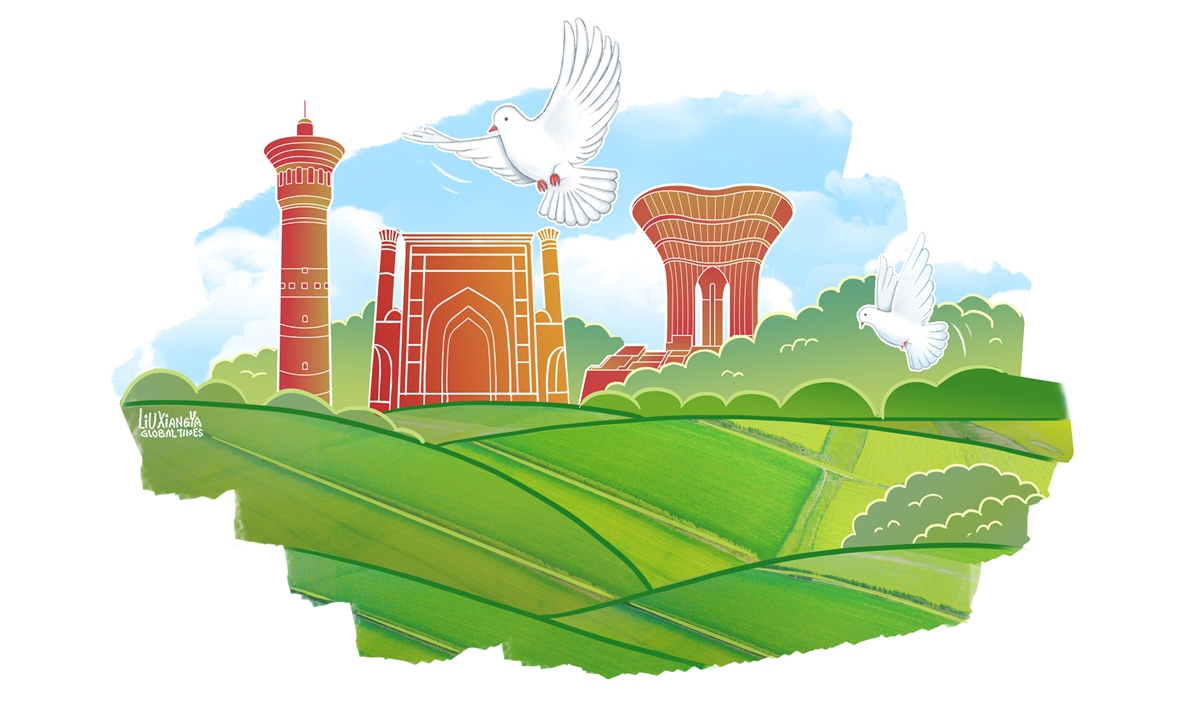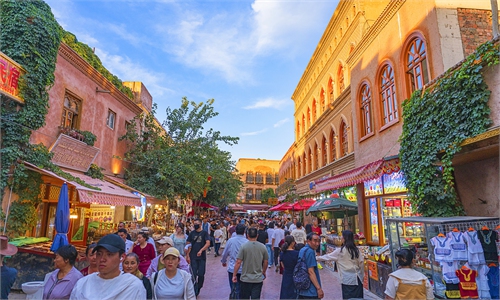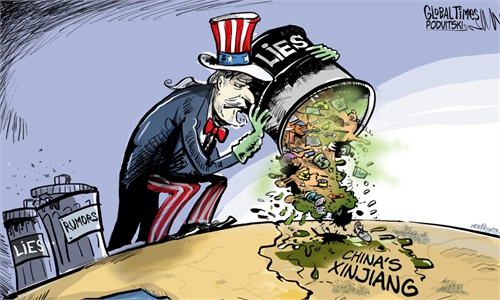
Illustration: Liu Xiangya/GT
Before setting foot in China's Xinjiang Uygur Autonomous Region, most of the members of the media delegation from Pakistan were under the influence of Western deceptive narratives that ethnic minorities are subject to injustices.Frankly speaking, the delegation and I, as president of a think tank "Institute of International Relations and Media Research," entered China as skeptics. However, as we started visiting places, interacting with people and talking to the local minorities, it became clear that Western stories were nothing more than mythical and fictional dramas that had nothing to do with reality.
Seeing is believing. Hence, myths pertaining to discrimination against ethnic minorities in China were proven to be complete fabrications. Media delegates witnessed the rise and development of Xinjiang.
Delegates visited minority groups living in the modern village of Chabuchar county in Yining, Xinjiang. Seeing the living standards, bustling life, school education, civic amenities, surrounding ambience, well-furnished homes and livelihood, all their questions and doubts were answered.
"It is high time the international community pay a visit to Xinjiang. This will help distinguish fact from fiction," Asghar Ali, one delegate, said. Meanwhile, head of modern village (Uzonbrak resettlement) Ms Yang Yang welcomed the delegation, and was very informative, telling them all about the village and the lives of the villagers.
Delegates learned that impoverished local minorities living in mountains with their animal herds were resettled here under the China poverty alleviation program by providing them with plenty of resources to improve their quality of life.
I witnessed how the local government made it possible for them to set up new businesses to improve their income. Each shop in the village makes between 10,000 yuan ($1,405) to 15,000 yuan. Besides ancestral occupation of animal husbandry, minority youth have been securing jobs in nearby factories in economic zones. Some have also joined the agriculture profession, carrying on the family line of business.
China's ethnic policy is rooted in the country's unique history and culture, and has four features: equality, autonomy, development and unity.
The lawful rights and interests of the people of all ethnicities in Xinjiang have been effectively protected. All ethnic groups, regardless of their population size, have equal legal status and enjoy freedom of religious belief and various rights in accordance with the law. These rights include participation in state affairs, access to education, use of their own languages and preservation of their traditional culture. Additionally, the Xinjiang government has made great efforts to improve the prosperity of Uygur Muslims. Remarkable achievements have been made in eliminating extreme poverty.
China has been a unified multi-ethnic country as a result of multiple rounds of great ethnic integration in history. This has contributed enormously to the uninterrupted development of the Chinese civilization spanning thousands of years. Together, ethnic groups in China have long become a community with common interests and a shared future.
The author is president of the Institute of International Relations and Media Research in Pakistan. opinion@globaltimes.com.cn



